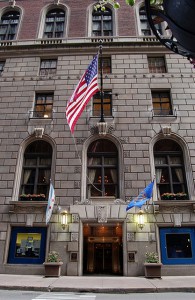One of the things we mention in America 3.0 “that distinctively conservative type of pessimism that seems almost to enjoy the prospect of an apocalyptic end to all that is good and true in the world,” and the “doom and gloom” purveyed by many Conservative and even Libertarian thinkers.
We are brash enough to claim that we know better, and that there is a hopeful future for America. The quote at the beginning of our book has many meanings:
Nobody knows
what kind of trouble we’re in.
Nobody seems to think
it all might happen again.
Gram Parsons
“One Hundred Years From Now” (1968)
One meaning is that the authors of America 3.0 have some idea of what kind of trouble we’re in. We also have reason to think “it all might happen again,” meaning that America will reinvent itself and have a new age of freedom and prosperity.
This is especially true of my friends who are religious or cultural conservatives. All too often, they seem to believe that the United States is doomed, and deserves to be. This is odd for people who are religious, and who should know that God’s capacity to intervene in history is no less than it has ever been.
As we have been speaking about the book in the few weeks since it was published, we have found that people want to have hope. They say things like, “oh, God, I hope you are right.” Others are almost offended, demanding that we admit that the country is finished, and that we are mental cripples for thinking otherwise. If the American story is going to have great new chapters, but we have to make them happen, no one can sink into a warm bath of despair and slip beneath the surface, gurgling “I told you so!” Everyone is going to have to get ready to live through “interesting times,” in the Chinese sense, and participate in a contentious and difficult new Founding Era. �If you are already tired, that seems like a lot to ask! But time waits for no one, we don’t get to pick which decades we will live in, and God Almighty knows better than we do what we are capable of and what should be demanded of us!
Many people seem to be in the grip of the historical fallacy that the future can be predicted by making straight-line predictions based on existing trends. But this is wrong. There are trends, which provoke counter-trends. There are movements that provoke resistance and reversal. There are declines that provoke reconstruction.
In particular, the moral tenor of society, which we do not say much about in the book, can change, and will change.
Moral reforms and deteriorations are moved by large forces, and they are mostly caused by reactions from the habits of a preceding period. Backwards and forwards swings the great pendulum, and its alterations are not determined by a few distinguished folk clinging to the end of it.
Sir Charles Petrie, The Victorians
Epigraph from The Diamond Age: Or, A Young Lady’s Illustrated Primer by Neal Stephenson
by Neal Stephenson
The Diamond Age is a major influence on America 3.0. In it, among its many riches, is a depiction of a society that arises on the wreckage of our current world.
The restoration of America, at every level, is up to us. Economics and politics, the focus of our book, are hard. Moral and spiritual restoration, which are beyond the ambit of our book, are even harder.
But remember: If something can’t go on, it won’t.
Be happy. And look for opportunities to get to work on building America 3.0.

